Antje Henke: Warum ich das EKC unterstütze, weil Frauengesundheit und Aufklärung Eckpfeiler einer wachsenden, gesunden Gesellschaft sind
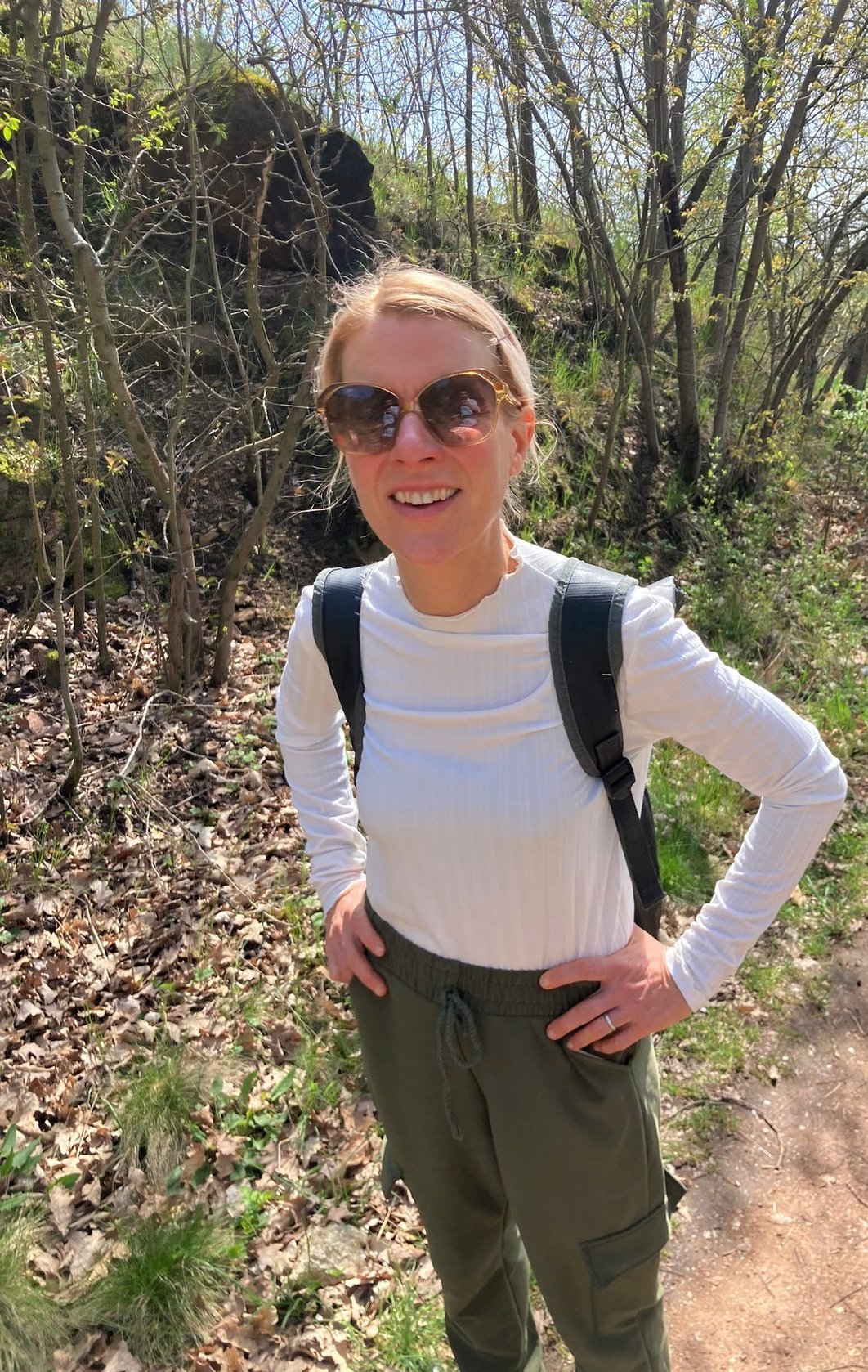
Mein Name ist Antje Henke und ich bin Expertin für Krebsprävention mit Fokus auf Subsahara-Afrika. Derzeit engagiere ich mich sowohl im wissenschaftlichen Projektmanagement des EKC-Projekts an der Universität Halle als auch ab August in Moshi, Tansania.
Das Else-Kröner-Center for Cancer Care spielt eine zentrale Rolle in der Grundversorgung von Frauen und trägt maßgeblich zur Steigerung der Krebsaufklärung und zum Empowerment von Patientengruppen und ihren Angehörigen bei. Durch die wissenschaftliche Kooperation zwischen Partneruniversitäten fördern wir die Implementierung und Evaluation neuer Projekte sowie den gegenseitigen Wissensaustausch.
Meine Arbeit im EKC-Projekt zielt darauf ab, die Krebsdiagnose und -behandlung zu verbessern, insbesondere durch die Koordination und Planung zur Optimierung der Abklärungsdiagnostik an der Universität Halle. Ich bin überzeugt davon, dass unsere innovativen Forschungsansätze in der Krebspräventionsforschung einen signifikanten Beitrag für die Patienten leisten werden.
-------------------------------------------------------------
My name is Antje Henke and I am an expert in cancer prevention with a focus on sub-Saharan Africa. I am currently involved in the scientific project management of the EKC project at the University of Halle and, from August, in Moshi, Tanzania.
The Else-Kröner-Center for Cancer Care is a key player in primary care for women and contributes significantly to increasing cancer awareness and empowering patient groups and their relatives. Through scientific cooperation between partner universities, we promote the implementation and evaluation of new projects as well as the mutual exchange of knowledge.
My work in the EKC project aims to improve cancer diagnosis and treatment, in particular by coordinating and planning the optimization of screening diagnostics at the University of Halle. I am convinced that our innovative research approaches in cancer prevention research will make a significant contribution to patients.
Lense Yadete: Ich unterstütze das EKC da es den Weg für eine verbesserte Krebsversorgung in Äthiopien ebnet
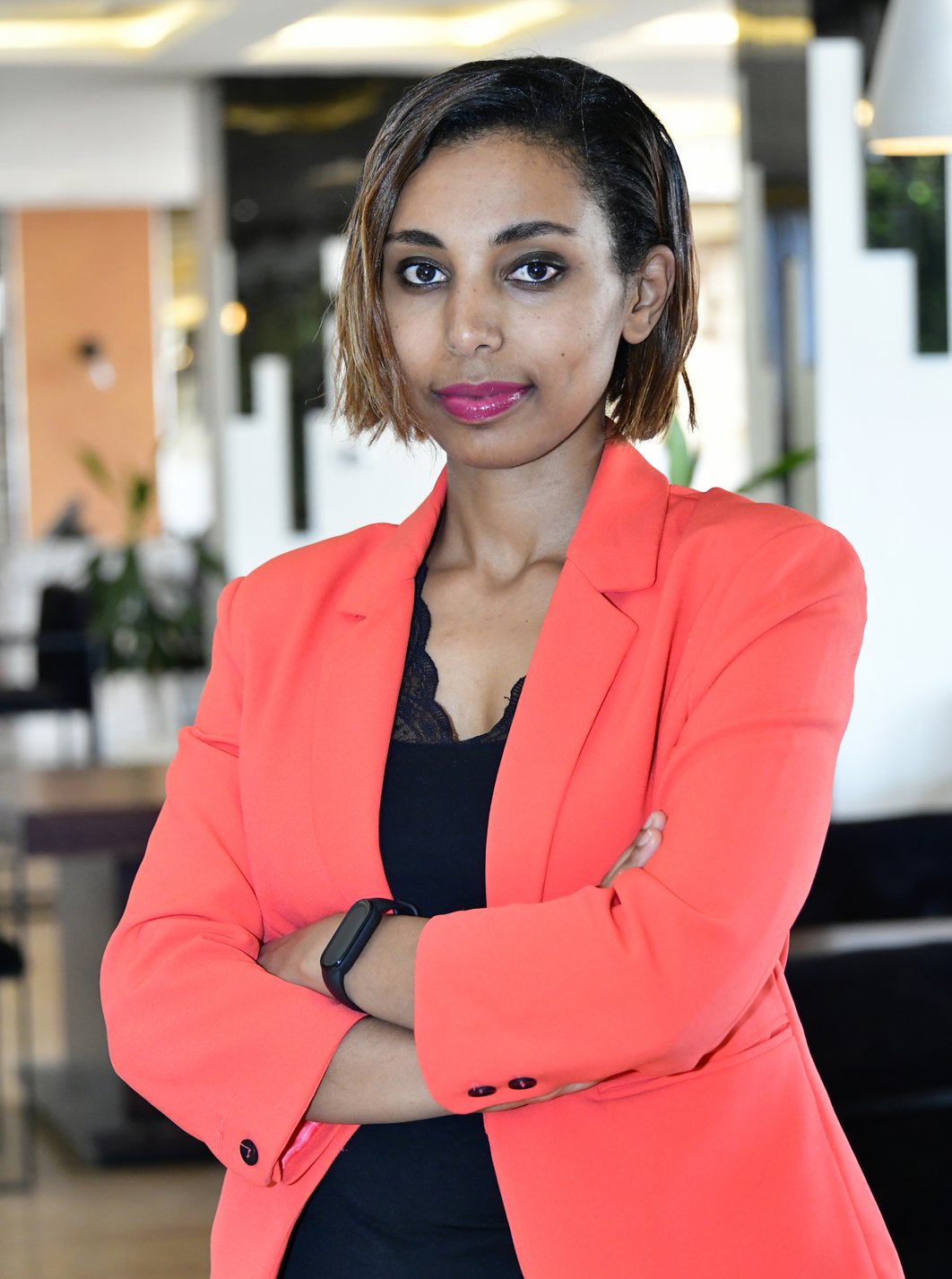
Mein Name ist Lense Yadete, ich bin Medizinerin in Addis Abeba und derzeit Koordinatorin des Else Kröner for Cancer Care Projekts. Ich spiele eine zentrale Rolle als Koordinatorin im Projekt in addis Abeba. Gemeinsam mit meinem Team erforschen wir derzeit die Erfahrungen mit unserem One-Stop-Cancer-Center. Ich gewährleiste eine reibungslose Erbringung von Dienstleistungen, indem ich die Kommunikation zwischen den verschiedenen Abteilungen, die zusammenarbeiten, koordiniere.
EKC unterstützt die Patienten, indem es dringend benötigte Krebsbehandlungen auf der Ebene der medizinischen Grundversorgung anbietet, die für viele äthiopische Frauen und Mütter schwer zugänglich sind. Und das ist so wertvoll. Danke.
------------------------------------------------------------
My name is Lense Yadete, I am a physician in Addis Ababa and currently the coordinator of the Else Kröner for Cancer Care project. I take a supporting role as coordinator in the project in Addis Ababa. Together with my team, we are currently researching the experiences with our One-Stop Cancer Center. I ensure a smooth delivery of services by coordinating communication between the different departments working together.
EKC supports patients by providing much-needed cancer treatment at the primary health care level, which is difficult for many Ethiopian women and mothers to access. And that is so worth it. Bless you.
Munir Awol: Ich unterstütze EKC, weil das Projekt eine Reise zur Verbesserung der Krebsforschung und Patientenversorgung in Äthiopien ist
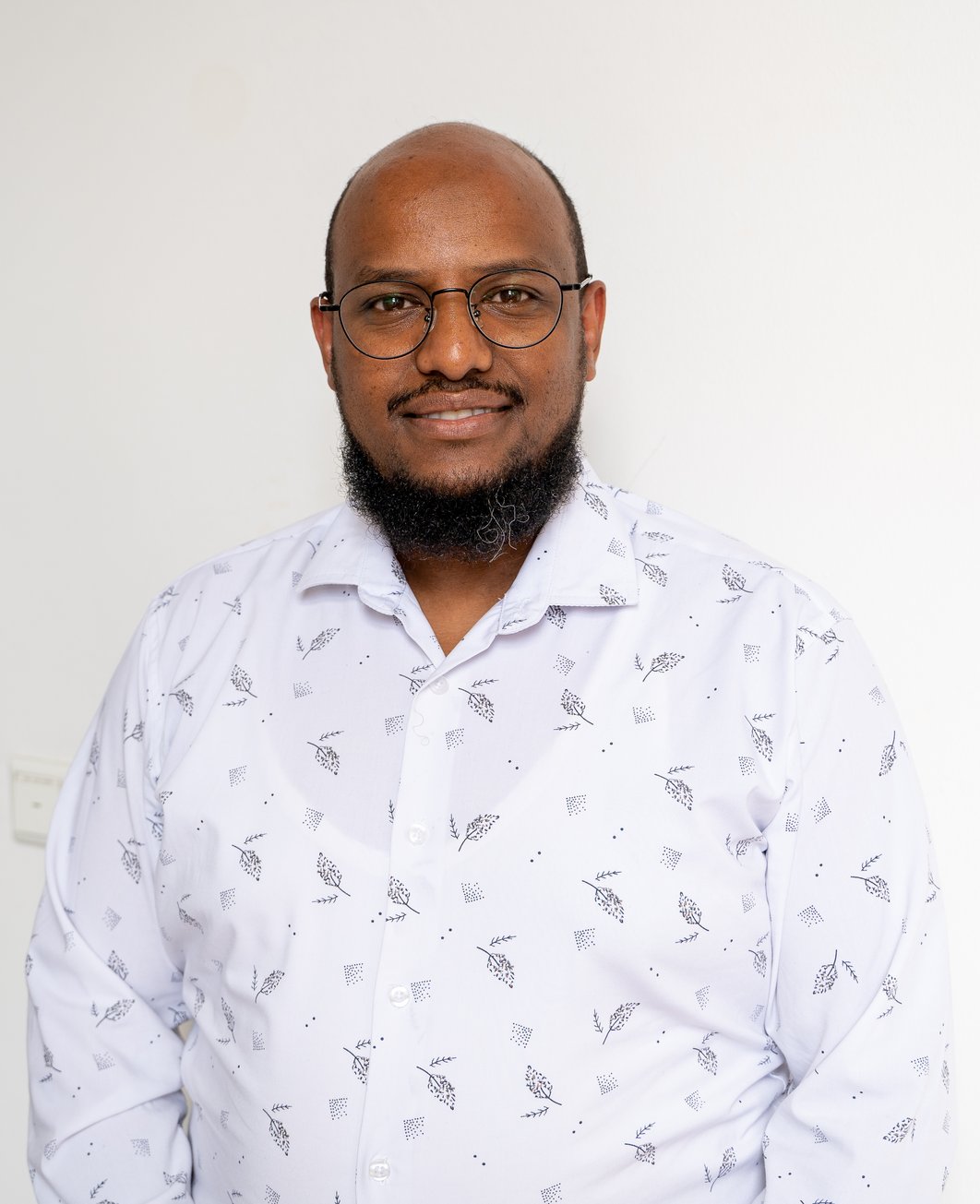
Ich heiße Munir Awol und bin Onkologe in Addis Abeba, Äthiopien. Das Else-Kröner-Projekt bot mir die Möglichkeit, im Mai 2024 an der Sommerschule in Halle teilzunehmen, um mein Verständnis für die Krebsforschung in Äthiopien zu vertiefen. Durch diese Erfahrung konnte ich wertvolle Einblicke gewinnen und mein Wissen erweitern.
Als Onkologe konzentriere ich mich auf die Diagnose und Behandlung von Krebs. Durch kontinuierliche Forschung und Ausbildung strebe ich an, die Versorgung von Krebspatienten nachhaltig zu verbessern. Für mich als Leiter der onkologischen Abteilung des Black Lion Hospitals ist das EKC ein Schlüsselfaktor zur Verbesserung der Forschungskapazitäten des Personals und der Auszubildenden im Bereich der Onkologie. Es unterstützt die Patienten in verschiedenen Programmen, die von psychosozialer Unterstützung bis hin zu einem besseren Zugang zu speziellen Behandlungen reichen. Das EKC hilft den Patientinnen, indem es den Zugang zur Frühdiagnose durch Screening- und Früherkennungsprogramme sowie die rechtzeitige chirurgische Behandlung von Brustkrebspatientinnen verbessert.
----------------------------------------------------------------
My name is Munir Awol and I am an oncologist in Addis Ababa, Ethiopia. The Else-Kröner project offered me the opportunity to attend the summer school in Halle in May 2024 to deepen my understanding of cancer research in Ethiopia. Through this experience, I was able to gain valuable insights and expand my knowledge.
As an oncologist, I focus on the diagnosis and treatment of cancer. Through continuous research and education, I strive to improve the care of cancer patients in a sustainable way. For me, as head of the oncology department at Black Lion Hospital, the EKC is a key factor in improving the research capabilities of staff and trainees in the field of oncology. It supports patients in various programs ranging from psychosocial support to better access to specialized treatments. The EKC helps patients by improving access to early diagnosis through screening and early detection programs as well as timely surgical treatment for breast cancer patients.
Veronica Afework: Ich unterstütze das EKC Projekt da ich Fortschritte in der Brustkrebschirurgie in Äthiopien erreichen möchte
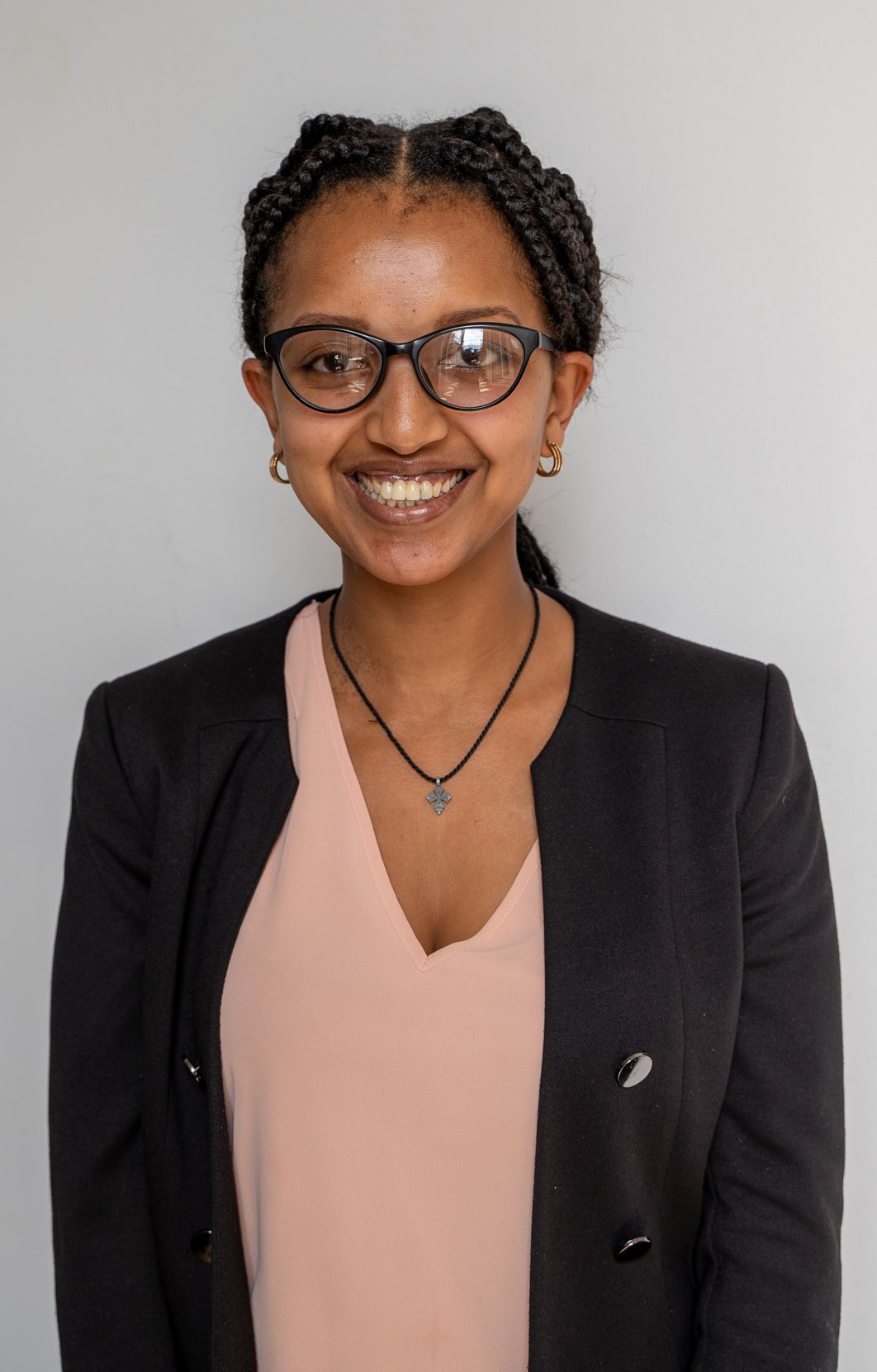
Veronica Afework, eine 32-jährige Allgemein- und Brustchirurgin, hat durch das EKC-Projekt in Äthiopien wesentliche Fortschritte in ihrer Karriere als Brustchirurgin erzielt.
Dank eines Austauschprogramms am Universitätsklinikum Halle (UKH) in Deutschland konnte sie ihre chirurgischen Fähigkeiten erheblich verbessern. „Ich hatte die Gelegenheit, bei komplexen Eingriffen wie Lumpektomien, Mastektomien, Brustrekonstruktionen und Sentinel-Lymphknoten-Biopsien zu assistieren“, berichtet Afework. Diese Erfahrung erweiterte ihr klinisches Wissen und ihre Entscheidungsfähigkeit.
Ein weiterer Meilenstein war ihre Teilnahme an der Forschungssommerschule in Halle. „Diese Erfahrung hat meine Forschungsfähigkeiten und mein berufliches Netzwerk erheblich erweitert“, sagt sie. Die Sommerschule half ihr, ein tieferes Verständnis für statistische Methoden und die Interpretation von Daten zu entwickeln.
Ihre neu gewonnenen Fähigkeiten fließen direkt in ihr Forschungsprojekt ein: „Breast cancer surgical care and lived experience of patients after mastectomy, treated at a tertiary hospital and a One stop breast center in Ethiopia“. Dieses Projekt zielt darauf ab, die Versorgung von Brustkrebspatientinnen in Äthiopien zu verbessern.
Afework ist ein herausragendes Beispiel dafür, wie internationale Zusammenarbeit und Weiterbildung die medizinische Versorgung in Entwicklungsländern voranbringen können.
---------------------------------------------------------------
Veronica Afework, a 32-year-old general and breast surgeon, has made significant progress in her career as a breast surgeon thanks to the EKC project in Ethiopia.
Thanks to an exchange program at the University Hospital Halle (UKH) in Germany, she was able to significantly improve her surgical skills. "I had the opportunity to assist in complex procedures such as lumpectomies, mastectomies, breast reconstructions and sentinel lymph node biopsies," reports Afework. This experience expanded her clinical knowledge and decision-making skills.
Another milestone was her participation in the research summer school in Halle. "This experience significantly expanded my research skills and my professional network," she says. The summer school helped her to develop a deeper understanding of statistical methods and the interpretation of data.
Her newly acquired skills are directly incorporated into her research project: "Breast cancer surgical care and lived experience of patients after mastectomy, treated at a tertiary hospital and a One stop breast center in Ethiopia". This project aims to improve the care of breast cancer patients in Ethiopia.
Afework is an outstanding example of how international cooperation and training can advance medical care in developing countries.
Gelana Lulu Saketa: Ich unterstütze das EKC, weil es eine verbesserte Krebsversorgung im Churchill Health Center, auf Grundversorgungsebene schafft
Gelana Lulu Saketa, Geschäftsführer des Churchill Health Center in Addis Abeba, hebt die bedeutenden Fortschritte hervor, die das EKC-Projekt im Bereich der Krebsversorgung in Äthiopien bewirkt hat.
„Das EKC-Projekt unterstützt Frauen bei der Früherkennung von Krebs, bei der Diagnose und Behandlung, um die Morbidität und Mortalität zu senken“, erklärt Saketa. Durch das Projekt werden nicht nur medizinische Geräte und Ausstattung bereitgestellt, sondern auch das Gesundheitspersonal umfassend weitergebildet, um eine qualitativ hochwertige Versorgung zu gewährleisten.
Bei ihm laufen alle geschäftsführende Aktivitäten im Churchill Health Center im Rahmen des EKC-Projektes ein: Er betont, wie die Dezentralisierung der Krebsversorgung durch das EKCC vom Tertiärkrankenhaus zur primären Gesundheitsversorgung den Patienten zugutekommt. „Patienten können nun Screening, Diagnose und Behandlung an einem Ort mit multidisziplinären Spezialistenteams erhalten“, sagt sie. Dies verkürzt die Wartezeit für Diagnosen und die Warteliste erheblich und verbessert somit die Prognosen und die Lebensqualität der Patienten.
Zusätzlich spielt das Churchill Health Center eine wichtige Rolle in der Forschung und im Datenmanagement, was die kontinuierliche Verbesserung der Krebsversorgung in Äthiopien unterstützt.
Gelana Lulu Saketa sieht im EKC-Projekt eine entscheidende Initiative, die das Leben von Krebspatienten in Äthiopien nachhaltig verbessert und die Gesundheitsinfrastruktur des Landes stärkt.
---------------------------------------------------------------
Gelana Lulu Saketa, CEO of the Churchill Health Center in Addis Ababa, highlights the significant progress that the EKC project has made in the field of cancer care in Ethiopia.
"The EKC project supports women in the early detection, diagnosis and treatment of cancer in order to reduce morbidity and mortality," explains Saketa. The project not only provides medical devices and equipment, but also provides comprehensive training for healthcare staff to ensure high-quality care.
He is responsible for all management activities at the Churchill Health Center as part of the EKC project: He emphasizes how the decentralization of cancer care through the EKCC from the tertiary hospital to primary health care benefits patients. "Patients can now receive screening, diagnosis and treatment in one place with multidisciplinary teams of specialists," she says. This significantly reduces the waiting time for diagnoses and the waiting list, thus improving patients' prognoses and quality of life.
In addition, the Churchill Health Center plays an important role in research and data management, which supports the continuous improvement of cancer care in Ethiopia.
Gelana Lulu Saketa sees the EKC project as a crucial initiative that will sustainably improve the lives of cancer patients in Ethiopia and strengthen the country's healthcare infrastructure.
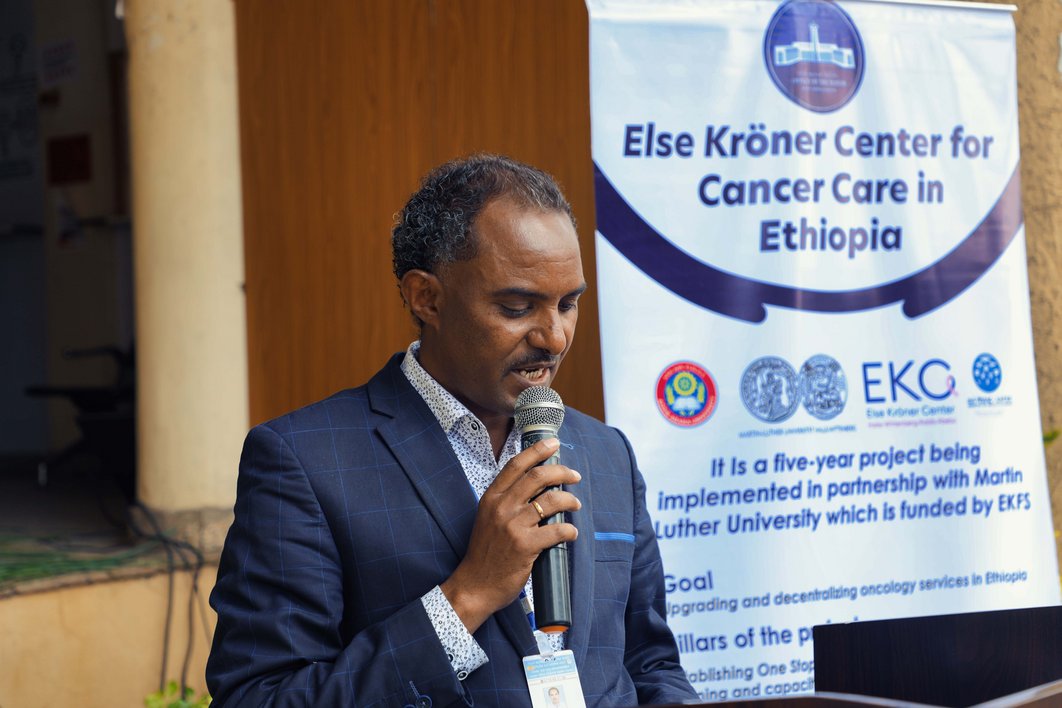
Sophie S. Rossner: Ich unterstütze das EKC weil es die medizinische und interkulturellen Ausbildung von PhD-Studierenden fördert
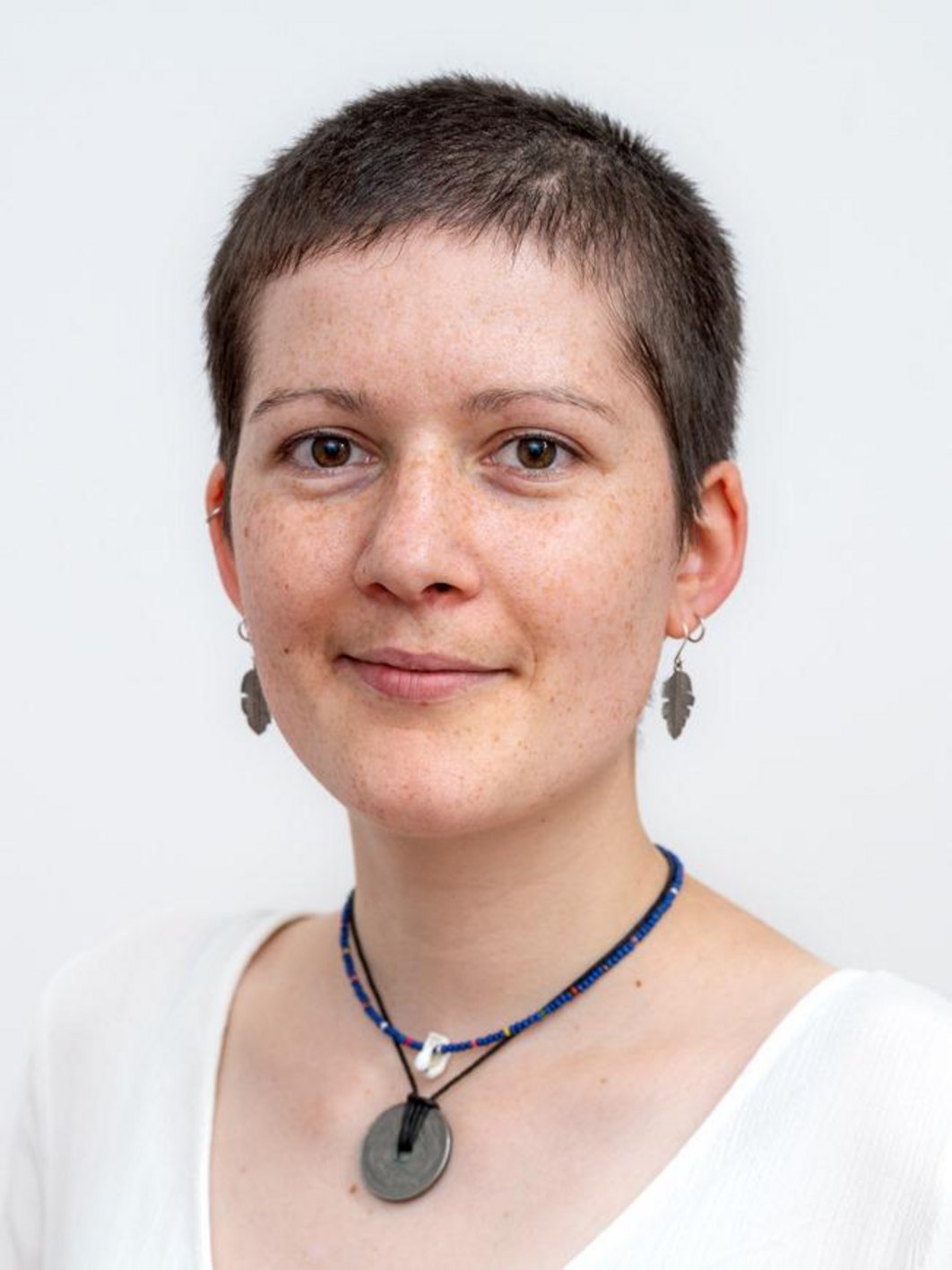
Sophie S. Rossner, eine 25-jährige Medizinstudentin aus Halle (Saale), berichtet über ihre wertvolle Erfahrung mit dem Else Kröner Projekt im Rahmen ihrer Doktorarbeit. Das Projekt unterstützte ihre Studie über e-Learning in der medizinischen Grundversorgung in Äthiopien.
„Meine Studie bot eine gründliche erste Evaluierung und Basisbewertung von e-Learning für das DINKNESH-Projekt“, erklärt Rossner. Das DINKNESH-Projekt zielt darauf ab, eine App für medizinisches Fachpersonal zu entwickeln, die ihr Wissen über die Prävention und Behandlung von Brust- und Gebärmutterhalskrebs erweitern soll. Diese Evaluation könnte als Modell für ähnliche Projekte in Äthiopien dienen.
Für Rossner bedeutet das EKC-Projekt eine einmalige Gelegenheit, in die Welt der Forschung einzutauchen und wertvolle Erfahrungen für ihre zukünftige Karriere zu sammeln. „Das EKC-Projekt bietet mir als Studentin die Chance, praxisnahe Forschungserfahrungen zu machen und mein Wissen zu erweitern“, sagt sie.
Rossner arbeitet an diesem Projekt bei der Global Health AG der Martin-Luther-Universität Halle-Wittenberg. Durch ihre Beteiligung trägt sie zur Verbesserung der medizinischen Ausbildung und der Gesundheitsversorgung in Äthiopien bei.
Sophie S. Rossner zeigt, wie internationale Zusammenarbeit und innovative Bildungsprojekte die medizinische Versorgung in Entwicklungsländern verbessern können.
--------------------------------------------------------
Sophie S. Rossner, a 25-year-old medical student from Halle (Saale), reports on her valuable experience with the Else Kröner Project as part of her doctoral thesis. The project supported her study on e-learning in primary health care in Ethiopia.
"My study provided a thorough initial evaluation and baseline assessment of e-learning for the DINKNESH project," explains Rossner. The DINKNESH project aims to develop an app for healthcare professionals to increase their knowledge about the prevention and treatment of breast and cervical cancer. This evaluation could serve as a model for similar projects in Ethiopia.
For Rossner, the EKC project is a unique opportunity to immerse herself in the world of research and gain valuable experience for her future career. "As a student, the EKC project offers me the chance to gain practical research experience and expand my knowledge," she says.
Rossner is working on this project at Global Health AG at Martin Luther University Halle-Wittenberg. Through her involvement, she is helping to improve medical training and healthcare in Ethiopia.
Sophie S. Rossner shows how international cooperation and innovative educational projects can improve medical care in developing countries.
